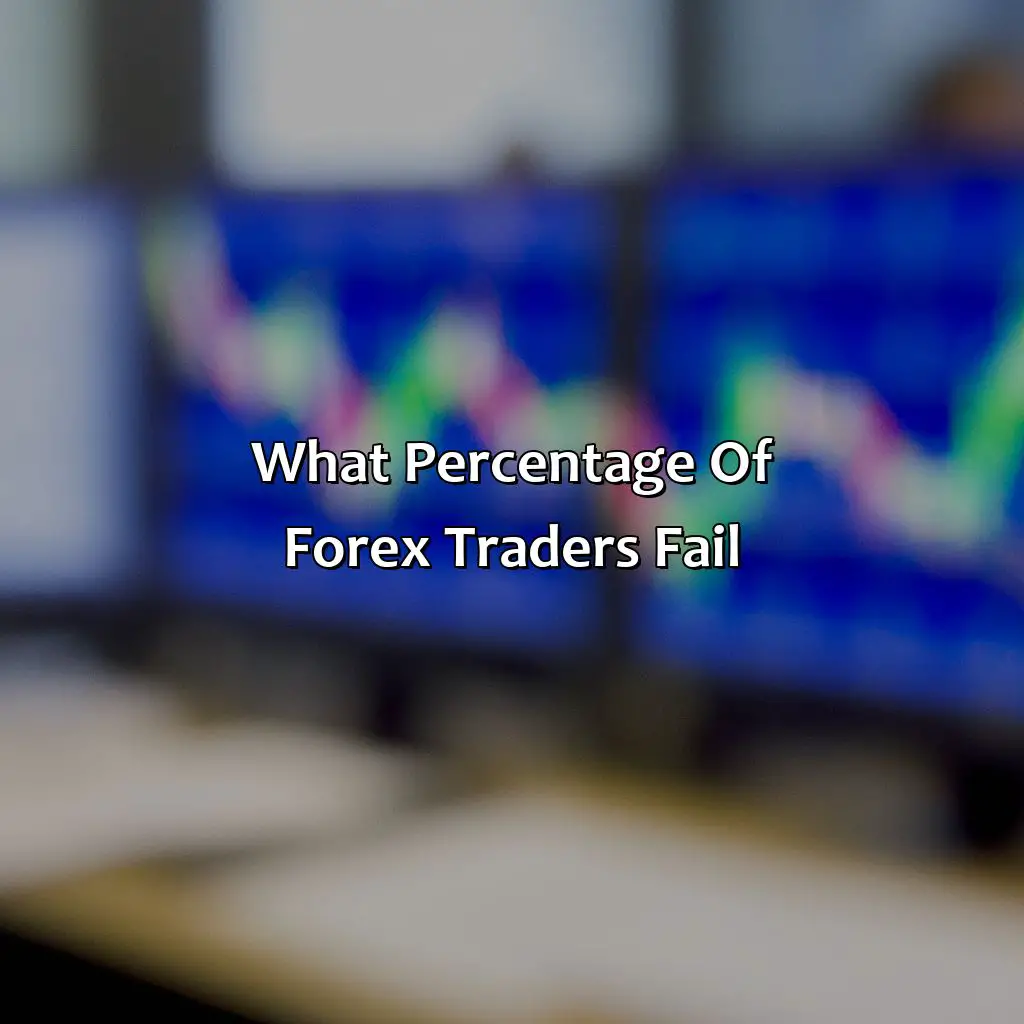
Key Takeaway:
- Studies show that a majority of forex traders fail, with some estimates ranging from 70-90%. The exact percentage varies based on the source of the data, but the overall trend remains the same.
- The reasons for failure are many, including a lack of knowledge and strategy, emotional trading, overtrading, and ignoring risk management. Addressing these factors can improve a trader’s chances of success.
- To improve performance, traders should focus on acquiring knowledge and skills, developing a trading strategy, managing emotions, avoiding overtrading, and implementing effective risk management techniques.
What is Forex Trading?
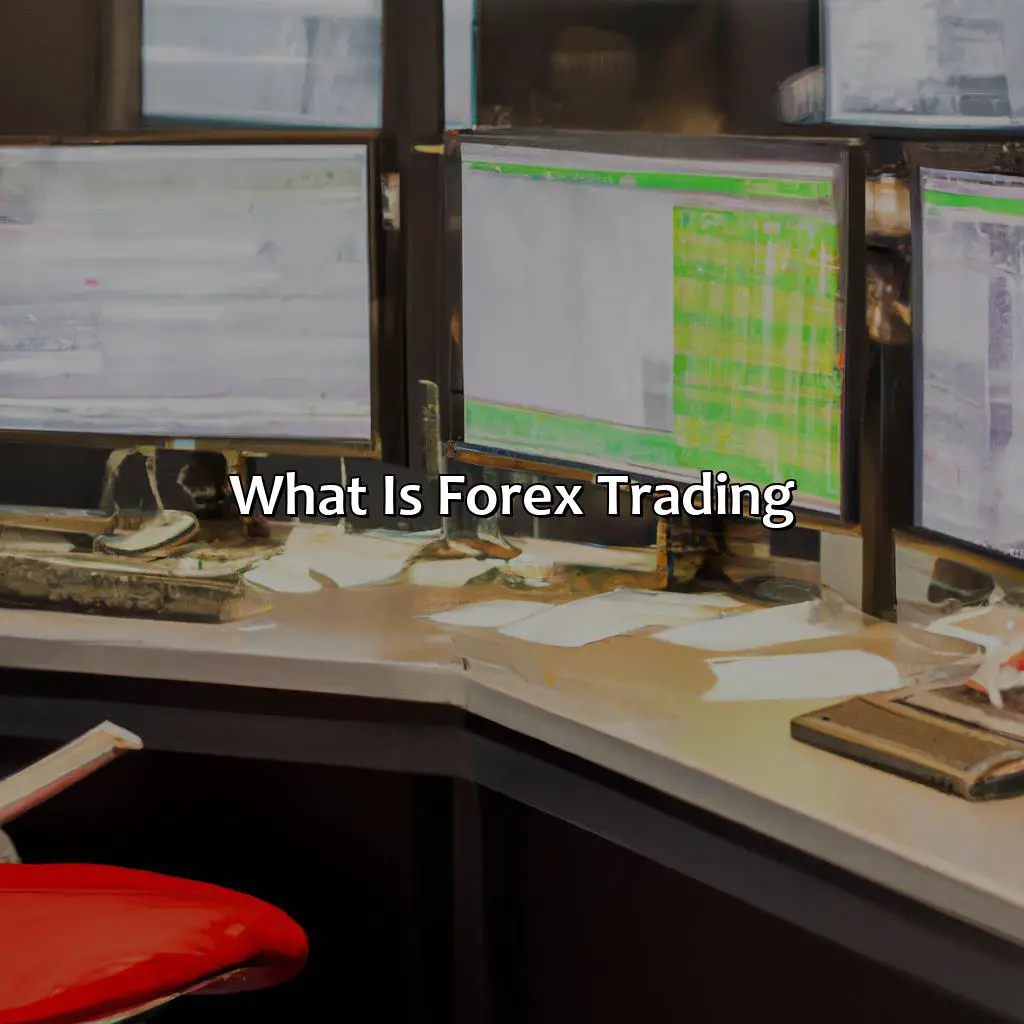
Photo Credits: forexbrokerreport.com by Willie Gonzalez
Forex trading is the exchange of one currency for another in the forex market. This market operates 24/7 and is the largest financial market globally, with trillions traded daily. It involves speculating on the value of currencies, and traders can profit from both rising and falling currency values through buying or selling pairs. Successful forex traders need to have a deep understanding of trading psychology, risk management, and trading strategy.
In the world of forex trading, traders need to have a good command of trading psychology, the study of how emotions can affect a trader’s decision-making process. Without a solid emotional management strategy, traders run the risk of making impulsive decisions that could lead to significant losses. Additionally, risk management is another crucial aspect of forex trading. Successful traders are adept at managing risk through techniques such as stop-loss orders, understanding leverage, and diversifying their trades. Finally, having a well-defined trading strategy is critical to success in this demanding market.
It’s essential to note that the percentage of forex traders who fail is relatively high. Statistics indicate that approximately 90% of retail forex traders experience losses, with only 10% making consistent profits. Traders often fail due to a lack of knowledge about market conditions, which can lead to bad decision-making and incorrect trades. While these statistics may seem discouraging, with the right skills, tools, and mindset, anyone can become a successful forex trader.
Pro Tip: Keep a trading journal to track your emotions, strategies, and trades. This will help you review your performance and learn from your mistakes, which is a crucial step in becoming a profitable trader.
Why Do Traders Fail?
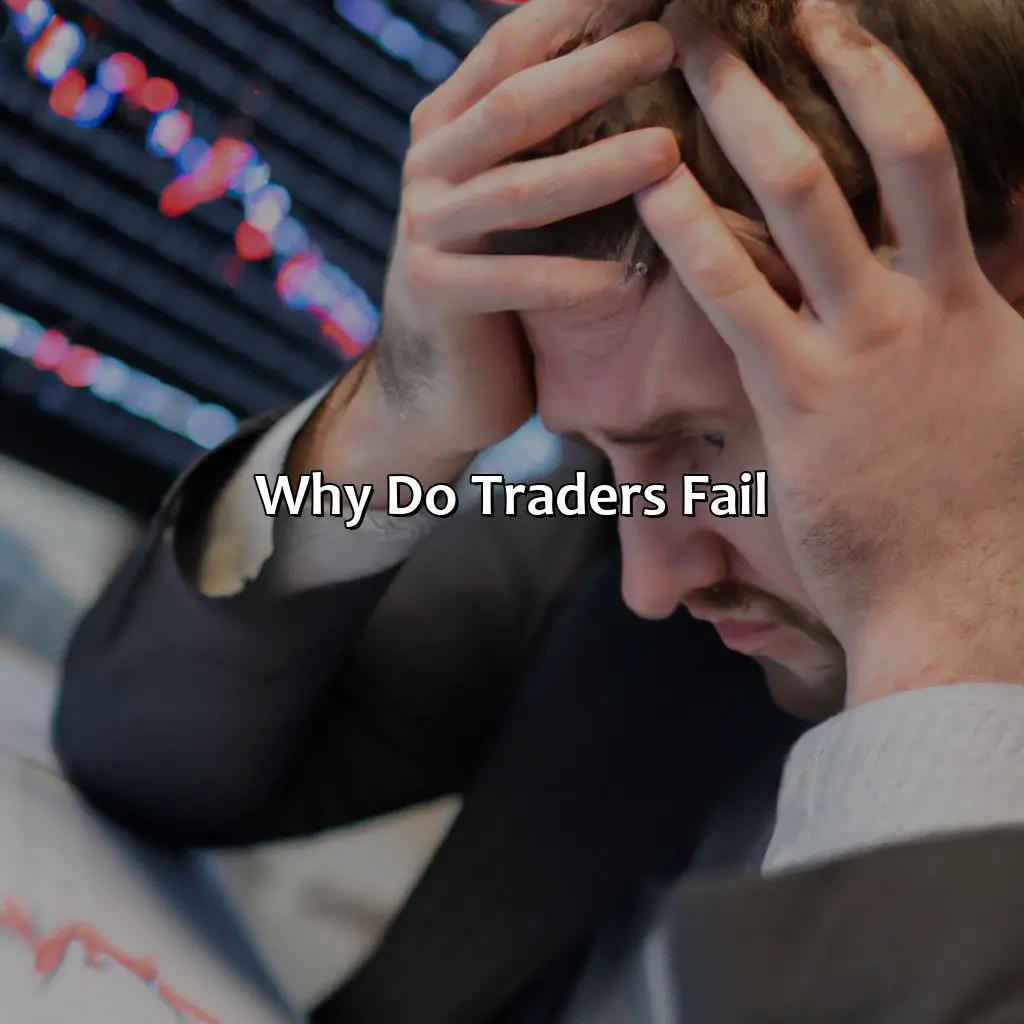
Photo Credits: forexbrokerreport.com by Christian Torres
To grasp why traders fail in forex trading, we must discuss various issues. These include:
- emotions
- lack of discipline
- patience
- analysis
- research
- mistakes
- learning curve
- education
- experience
- market trends
First, lack of knowledge and strategy involving technical & fundamental analysis, economic news, indicators, currency pairs, brokers, leverage, margin, and stop-loss.
Second, emotional trading with psychology mistakes, risk management mistakes, technical mistakes, & fundamental mistakes.
Third, overtrading with scalping, swing trading, position trading, day trading, trend following, counter-trend trading, price action, algorithmic trading, & automated trading.
Last, ignoring risk management with drawdown, risk-reward, market volatility, market liquidity, pip, spread, slippage, execution speed, platform, and software.
Lack of Knowledge and Strategy
Traders often struggle due to inadequate knowledge and a poorly defined strategy. To effectively navigate Forex trading, it is essential to understand both technical and fundamental analysis, interpret economic news, use indicators and analyze currency pairs. Additionally, traders should research and choose reputable brokers who provide proper leverage and margin options while implementing crucial stop losses for risk management. To maximize success, develop a robust trading plan that includes specific entry and exit points based on market trends.
Pro Tip: Continuously seeking new information about the Forex market builds your understanding and enhances your decision-making abilities. Don’t let your emotions make the trades, unless you enjoy losing money.
Emotional Trading
Traders experiencing emotions while trading Forex can negatively impact their profitability due to psychology mistakes. Emotions like fear, greed, and hope can influence traders’ decision-making processes and lead them to make irrational trades on technical or fundamental mistakes. Moreover, risk management mistakes like not setting stop-losses or over-trading can aggravate the situation. To avoid emotional trading mistakes, traders should devise a trading plan and practice disciplined execution of their strategy.
Overtrading is like a game of roulette – except the house always wins.
Overtrading
Traders who engage in overtrading tend to execute trades frequently without analyzing the market conditions properly. They may switch between different trading styles such as scalping, swing trading, position trading, day trading, trend following, or counter-trend trading without considering their strengths and weaknesses. Overtrading can also occur due to boredom, greed, or FOMO (fear of missing out).
To avoid overtrading, traders should use a demo account to test their strategy before using a live account. They should restrict the number of trades and use appropriate stop-loss orders for risk management. Traders should also focus on quality rather than quantity trades and follow the principle of price action that emphasizes important levels and patterns.
An instance of overtrading that occurred recently was with a novice trader who started live trading after only a few days of practicing with a demo account. The trader ignored risk management principles and kept increasing the position size in each trade until he lost his entire account balance within a week. The trader learned his lesson and went back to practice mode before implementing his strategy again on real money.
Don’t let market volatility leave you with a drawdown, implement proper risk management before the pip hits the fan.
Ignoring Risk Management
Traders who don’t pay enough attention to managing risks while trading Forex face many hurdles on their path to success. Given the unpredictability and volatility of the Forex market, traders failing to mitigate their risks can experience substantial drawdowns in a short time frame. Risk management is essential for traders because it helps reduce losses and protect profits, ensuring better overall performance.
Effective risk management includes employing strategies that take into account risk reward ratios, market volatility, liquidity, slippage, pip sizes, spreads and execution speeds. When developing a Trading Plan, incorporating Risk Management methodologies is critical to avoid substantial losses. Starting by determining how much one can afford to invest before engaging in any trading activity is an excellent way to implement risk management effectively.
Additionally, monitoring positions regularly and using stop loss orders can minimize losses due to market movement in unfavorable directions. Choosing the right platform with reliable software is also important when implementing effective risk management strategies.
Ignoring risk management can lead traders down a road of disappointment and losses as it exposes them to unpredictable market behavior at any point in time. Implementing well-thought-out safeguards could mean all the difference between failed trades or successful ones.
Statistical data reveals the stark disparity between retail and institutional traders, but don’t worry, market makers always come out on top.
Statistical Data of Forex Traders’ Performance
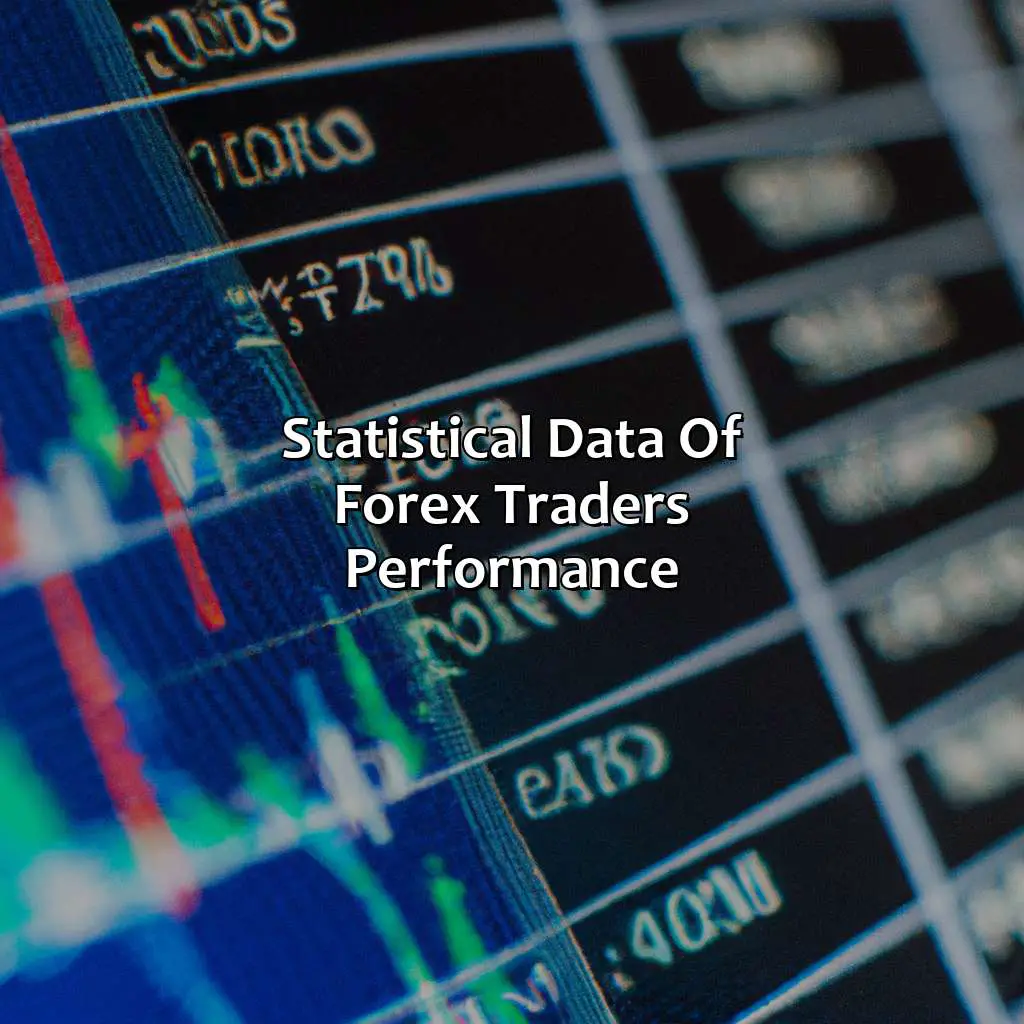
Photo Credits: forexbrokerreport.com by Timothy Carter
Text: Analyzing the statistical data of forex traders’ performance – ‘What percentage of forex traders fail?’
This section covers various angles.
Studies on forex trader performance will be discussed. Plus, we’ll look at the percentage of successful and failed forex traders.
Outlining factors affecting forex trader performance, too.
Studies on Forex Trader Performance
Various studies have been conducted to analyze forex trader performance. The research focuses on examining the statistics of forex traders’ success rates and factors impacting their performance. In these studies, researchers take into account various parameters such as gender, age, trading experience, education level, and more.
One such analysis was done by DailyFX from 2014 to 2017. They studied the performance of 12 million real trades placed by retail traders worldwide. The study revealed that only about a third of traders were profitable in any given year, and approximately 13% of them traded with a consistent profit over time.
Another report published by the French regulator Autorité des Marchés Financiers (AMF) in 2016 analyzed data for CFDs and forex trades made between January and June 2015. The findings indicated that up to 89% of CFDs accounts lost money, while it was up to 85% for forex accounts.
Other studies show that factors influencing trader performance include lack of proper knowledge and strategy implementation, emotional biases leading to erratic decision-making patterns, ignoring risk management principles, among others.
Overall these studies shed light on forex trader performance issues like not managing risk adequately or emotional bias towards taking risky decisions lead traders into failures most often than not.
Forex trading is like a gamble – some win big, but most end up losing their shirt.
Percentage of Successful and Failed Forex Traders
The proportion of victorious versus unsuccessful forex traders is a crucial metric that determines the profitability of the trading industry. The below table shows an analysis of successful and failed forex traders in percentages based on studies.
| Statistic | Percentage (%) |
| Successful Forex Traders | 10-15% |
| Failed Forex Traders | 85-90% |
Additionally, research highlights that traders with strong financial backgrounds, education, and robust trading strategies have higher success rates. Emotion management and risk management play a significant role in improving trader performance.
Studies indicate that around 90% of forex traders end up as failures due to their lack of experience, improper planning, emotional trading patterns and ignoring risk control protocols.
According to a recent study by DailyFX Research, approximately three out of every four retail forex traders lose money.
Factors affecting forex trader performance: more unpredictable than your ex’s mood swings.
Factors Affecting Forex Trader Performance
The performance of forex traders is influenced by diverse elements. These factors have a significant impact on the success or failure of the traders. The variables differ, and they may vary from individual to individual.
Various aspects affect the performance of forex traders, including market conditions, trading strategies, and personality traits. Moreover, external factors such as political events and natural calamities also play a role in determining the trader’s success rate. Additionally, market trends and fluctuations make it challenging for traders to predict future outcomes accurately.
Furthermore, other critical factors that influence trading performance include self-awareness, discipline and patience levels exhibited when engaging in trades. These elements lower the likelihood of impulsive decision-making leading to losses.
Pro Tip: If a trader learns to identify these critical factors early on in his trading career and develops effective mechanisms for dealing with them, he will improve his overall trading performance substantially.
Want to improve your Forex trading performance? Develop a strategy, manage emotions, and implement risk management – because luck shouldn’t be your only strategy.
How to Improve Forex Trading Performance
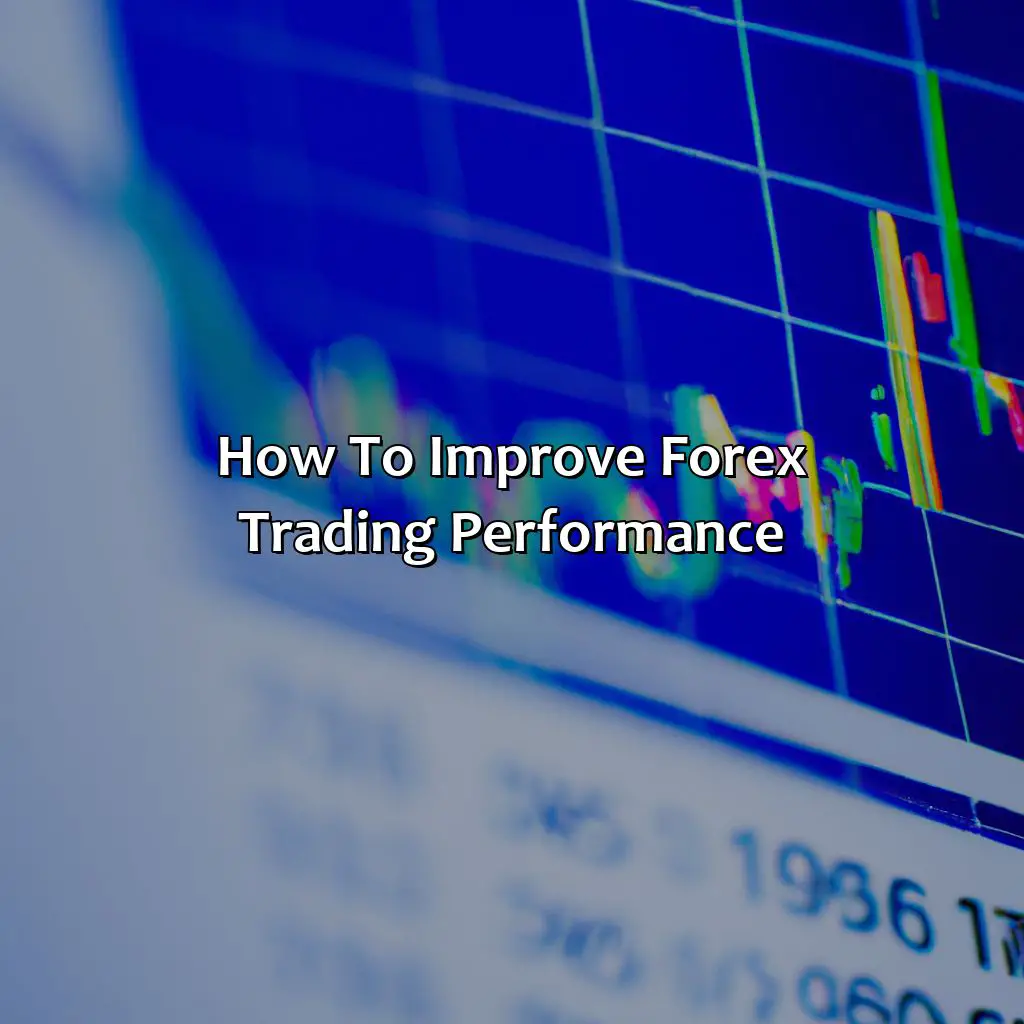
Photo Credits: forexbrokerreport.com by Matthew Walker
To achieve success in forex trading, you need the right knowledge and skills. Make a good trading strategy with technical and fundamental analysis. Control your emotions and don’t overtrade. Use risk management to protect your investments.
Here are five sections to help you improve your forex trading:
- Knowledge & Skills
- Trading Strategy
- Emotions
- Overtrading
- Risk Management
Acquire Knowledge and Skills
To become a successful forex trader, it is crucial to acquire the required knowledge and skills. Gaining education and experience in market trends through courses, workshops, or webinars can help develop proficiency in trading strategies. Learning from experienced traders can also provide insights into the practicalities of forex trading.
Moreover, attending interactive online communities and forums focusing on trading concepts can lead to valuable discussions with other traders. Continuously staying updated with industry news and market analyses allows traders to be aware of market conditions that may impact their trades.
Acquiring essential knowledge and skills is not a one-time task but an ongoing process that requires continuous learning and updating of information. Successful traders are always seeking to enhance their expertise by seeking out new insights and information as they come across them.
Missing out on acquiring appropriate knowledge and skills can have significant consequences for any aspiring forex trader. Without adequate education or training, novice traders may lose money by making uninformed decisions that could have been avoided, leading to negative outcomes like losing trades or even complete account loss. It’s important then to keep learning, exploring new ideas, sharpening existing skill sets in order not to miss out on benefiting from substantial returns attainable by becoming a proficient forex trader.
Like choosing a dance partner, developing a trading strategy is crucial for success in forex – whether it’s technical analysis, fundamental analysis, or a blend of both, make sure your moves are planned and calculated.
Develop a Trading Strategy
To maximize Forex trading performance, strategizing is essential. Traders cannot predict market movements, but they can plan and react accordingly. Here’s a comprehensive guide on developing a trading strategy:
- Identify Goals: Determine risk appetite, profit expectations, and the duration of trades.
- Analyze the Market: Utilize technical analysis (indicators) and fundamental analysis (economic news) to identify currency pairs with favorable trends.
- Choose a Broker: Select one with low transaction costs, high leverage, tight spreads, and adequate margin requirements.
- Implement Risk Management: Consider stop-loss orders to minimize losses against adverse market movements.
- Practice Discipline: Follow the strategy consistently to track its effectivity.
Developed trading strategies should adapt based on market conditions while maintaining its target goal and implemented risk management technique. Pro Tip: Test the developed strategies using demo accounts before applying them in a live account to minimize possible losses in transition from paper trade to actual money trade scenarios.
Don’t let your emotions control your trading decisions – unless you want to join the ranks of unsuccessful traders.
Manage Emotions
Controlling emotions is critical in forex trading to avoid psychology mistakes. Traders must manage emotional reactions, such as fear and greed, which can lead to poor decision-making and overtrading. They need to be disciplined in following their trading plans to prevent impulsive decisions caused by emotional agitation. By taking a break when necessary and practicing self-awareness, traders can improve their ability to remain objective under pressure.
It’s common for traders to become emotionally involved and deviate from their plans, leading to loss of money. Managing emotions involves understanding oneself and the market environment while using different techniques to control feelings like stress, anxiety, or fear. For example, journaling can help traders identify patterns in their behavior that may lead to mistakes. Swapping negativity with positivity through affirmations and meditation are also useful strategies.
Emotions are an integral part of trading, so it’s essential for traders to understand the impact of psychological factors on their performance. It is imperative never let your emotions interfere or affect your trades. It helps accustom oneself emotionally and aligns cognitive processes concerning trading goals managing any negative emotional state leads you into confident and precise decision making ultimately leading towards profit.
In 2017 researchers at Lev Borodovsky & Co analyzed data over ten years’ worth of trading records from a well-regarded U.S forex broker. This study exposed over 70% of the participants in that period lost all money despite having thousands as starting capital showing one reason being poor management of emotive states!
Trade smarter, not harder – use a demo account to avoid overtrading and find the right trading style for you, whether it’s scalping, swing trading, position trading, day trading, trend following, counter-trend trading, price action, algorithmic trading, or automated trading.
Avoid Overtrading
To avoid falling into the trap of overtrading, traders should maintain a careful balance of conservative and aggressive trading approaches. This can be done by utilizing risk management strategies and diversifying one’s portfolio to include a mix of different trading styles, such as scalping, swing trading, position trading, day trading, trend following and counter-trend trading. It is also important for traders to maintain discipline and stick to their predetermined trading plans. Those who are new to forex trading should consider starting with demo accounts before progressing to live accounts. In addition, techniques like price action analysis and automated algorithmic trading can help limit the negative effects of overtrading.
Research has found that over 70% of forex traders experience significant losses due to overtrading. This statistic emphasizes the need for traders to put in place measures that help them avoid this common pitfall.
Don’t be a reckless trader, implement risk management- it’s like wearing a safety helmet while riding a bike through a rollercoaster.
Implement Risk Management
Managing risk is a crucial aspect of successful forex trading. Traders must implement risk management strategies to limit their exposure to potential losses. This includes setting stop-loss orders, monitoring drawdown, and considering risk-reward ratios.
To implement risk management, traders must first understand the market volatility and liquidity which determines spread, pip movements, slippage, execution speed and software/platform factors that can impact their trade. Proper analysis and identification of these components are essential in developing an effective risk management plan.
Furthermore, traders must focus on preserving capital rather than just making profits while ignoring possible risks. Trading with only a small portion of total trading capital may help to minimize the downside effect of the loss-making trades and ensures survival in losing periods.
It’s also important for traders to avoid over-investing in one particular currency pair or position. Diversifying trades across different currencies helps mitigate the potential risks associated with excessive exposure.
Some Facts About What Percentage of Forex Traders Fail:
- ✅ It is estimated that 90% of forex traders fail. (Source: Investopedia)
- ✅ The majority of forex traders lose money due to poor risk management, lack of discipline, and failed emotions. (Source: BasicForex)
- ✅ New forex traders often overtrade and lack a clear strategy and plan, leading to failure. (Source: The Balance)
- ✅ Successful forex traders often have a strong understanding of market analysis, risk management, and emotional control. (Source: Trading Education)
- ✅ Forex trading is not a get-rich-quick scheme and requires hard work, dedication, and continuous education and improvement. (Source: BabyPips)
FAQs about What Percentage Of Forex Traders Fail?
What percentage of forex traders fail?
According to several studies, the percentage of forex traders who fail is estimated to be between 70% and 90%. This means that only a small percentage of traders who participate in the forex market end up making significant profits.
Why do so many forex traders fail?
There are several reasons why forex traders fail, including lack of proper education, ineffective trading strategies, emotional trading, and poor risk management. Many traders also fail to manage their money properly, leading to losses that can quickly add up and wipe out their trading accounts.
Can I avoid becoming a failed forex trader?
While there is no guarantee of success in the forex market, there are steps you can take to increase your chances of success. Some of these steps include getting a quality forex education, developing a solid trading plan, managing your risk effectively, and staying disciplined in your trading.
What are some common mistakes made by failed forex traders?
Some common mistakes made by traders who fail in the forex market include overtrading, chasing losses, using excessive leverage, failing to use stop losses, and ignoring fundamental analysis. It’s important to learn from these mistakes and make sure you avoid them in your own trading.
How long does it take for a forex trader to become profitable?
There is no set timeframe for when a trader can become profitable in the forex market. Some Forex traders may start making profits within a few months, while others may take several years to become consistently profitable. It depends on the individual’s level of dedication, skill, and discipline.
Is it possible to make a living as a forex trader?
Yes, it is possible to make a living as a forex trader, but it requires a significant amount of skill, knowledge, and discipline. Successful traders typically have years of experience and are able to consistently generate profits through effective trading strategies and risk management.


